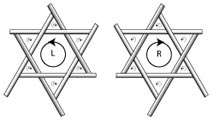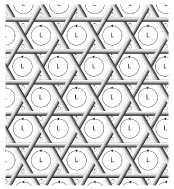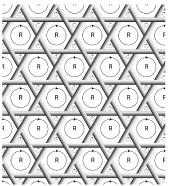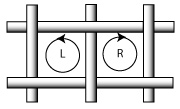
Each woven interaction produces its rotational complement. Just as the individual crossings of filaments have their helical axes so each square in a plain weave has its opposite. Each cell’s neighbors are its mirror form like alternate squares on a chess board. In three-way weaving, hexagons alternate with triangles. The weave can be set in two distinct forms like right and left-handed gloves. If the hexagons are constructed clockwise the triangles are counterclockwise and vice versa. |
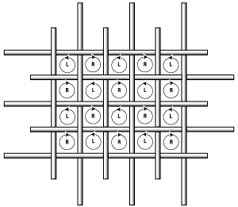
|
||
|
|||
